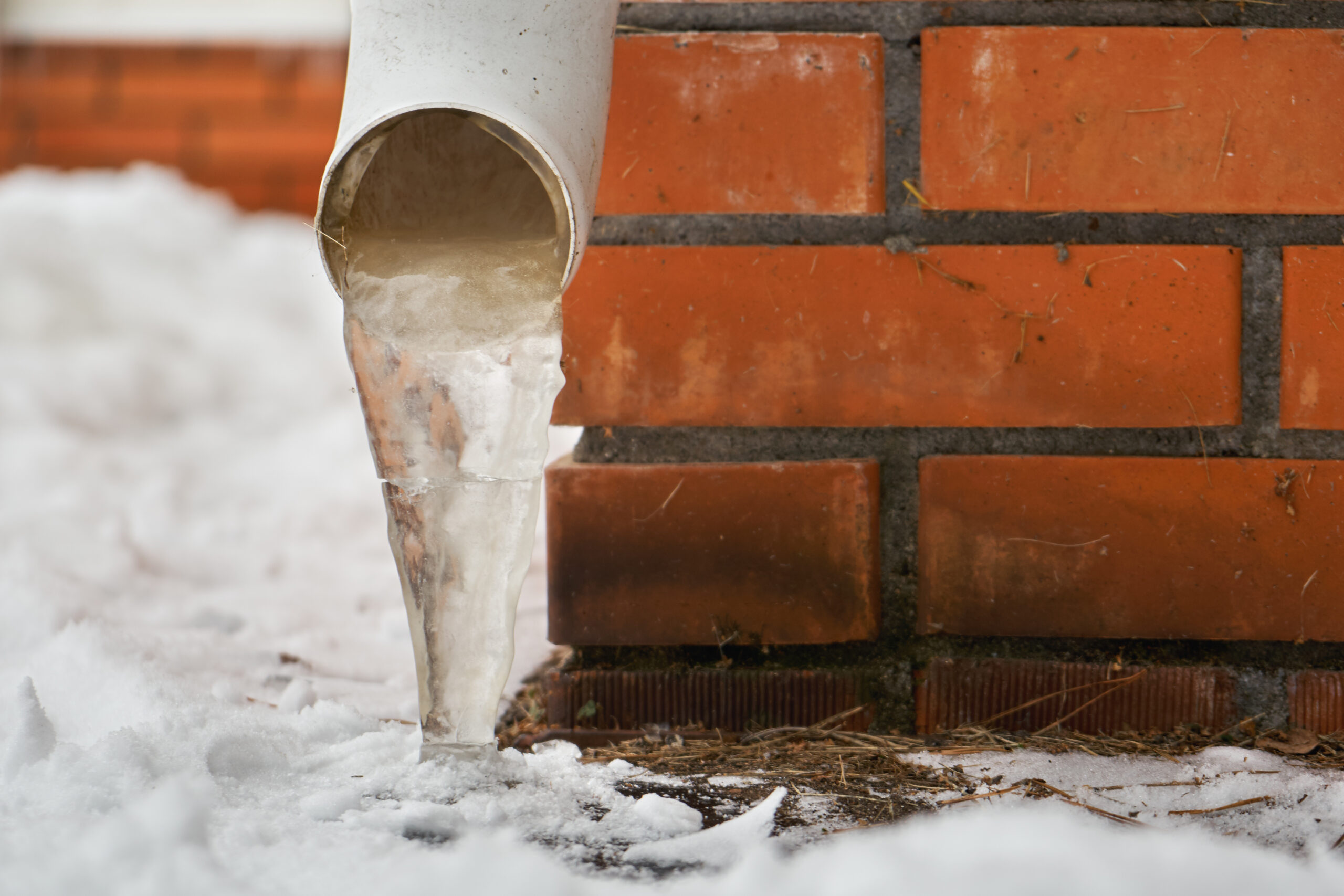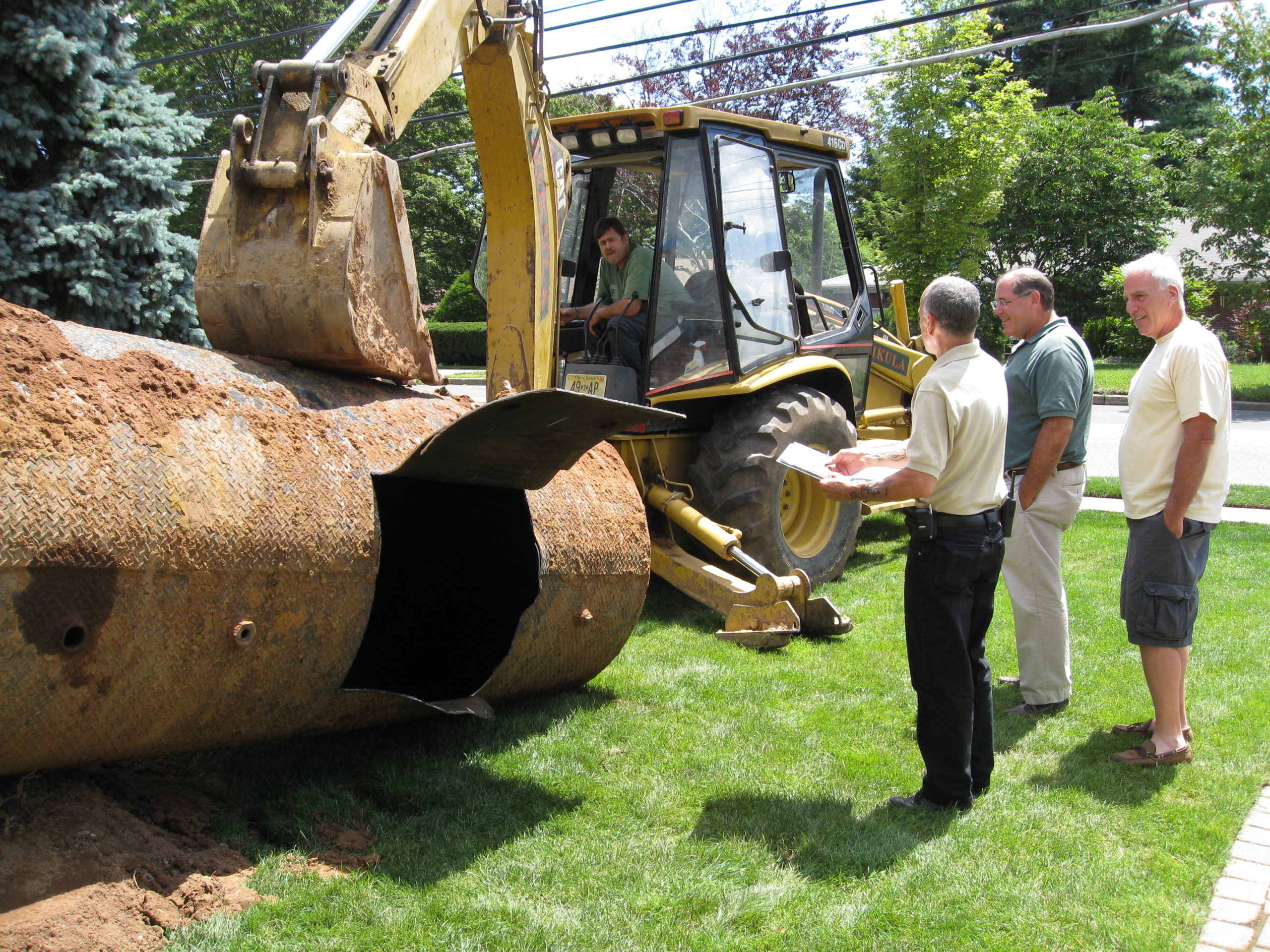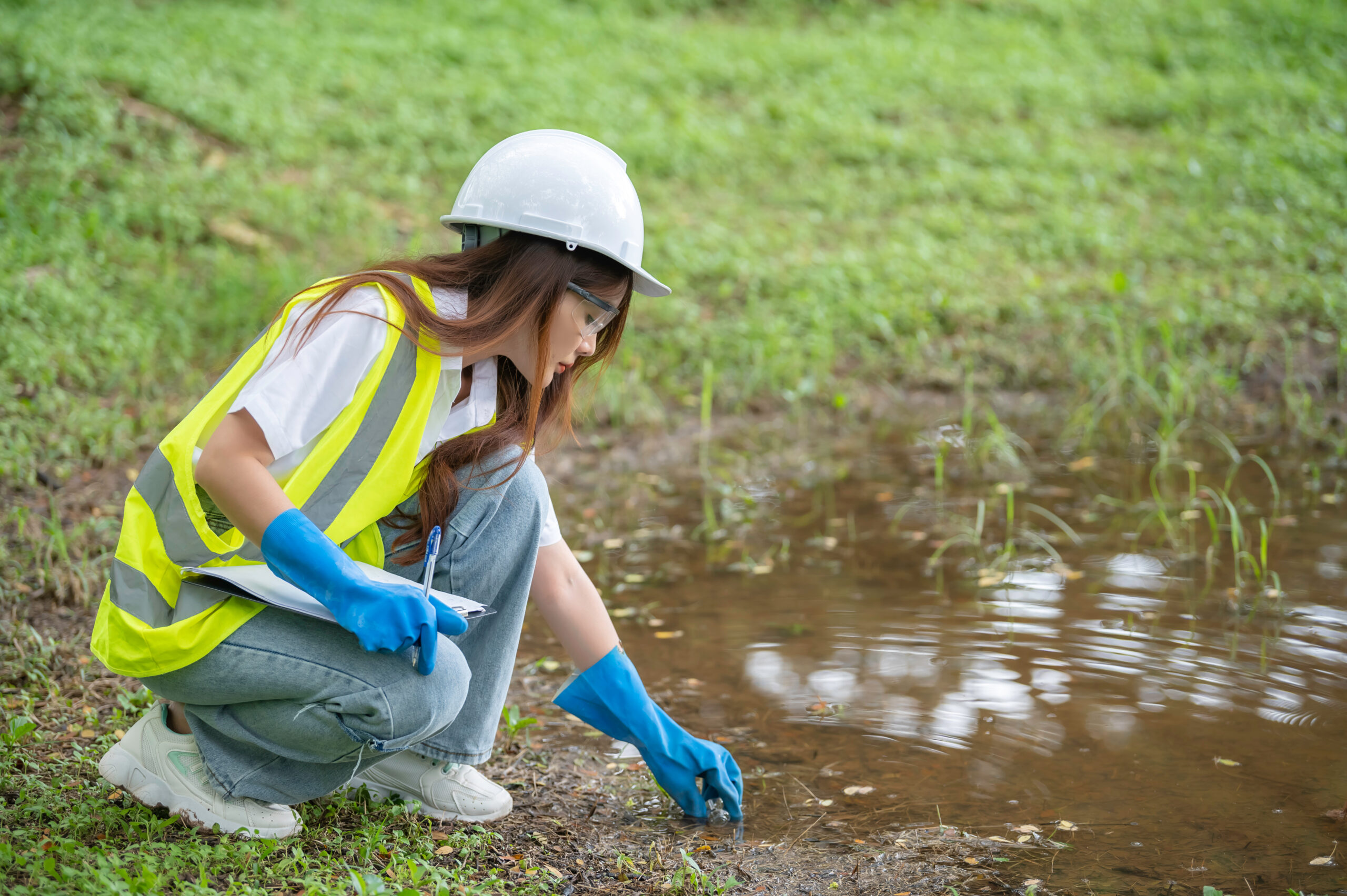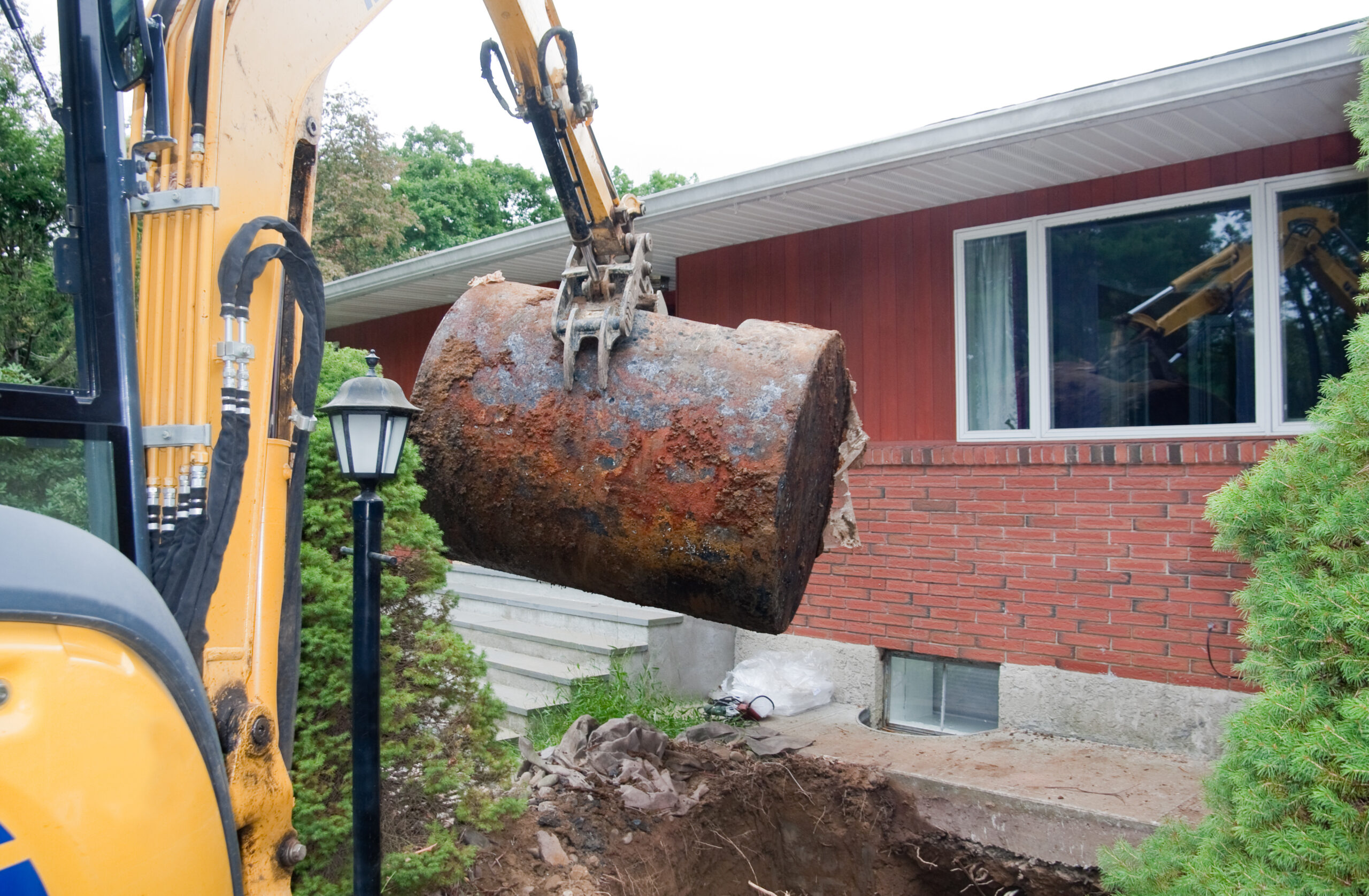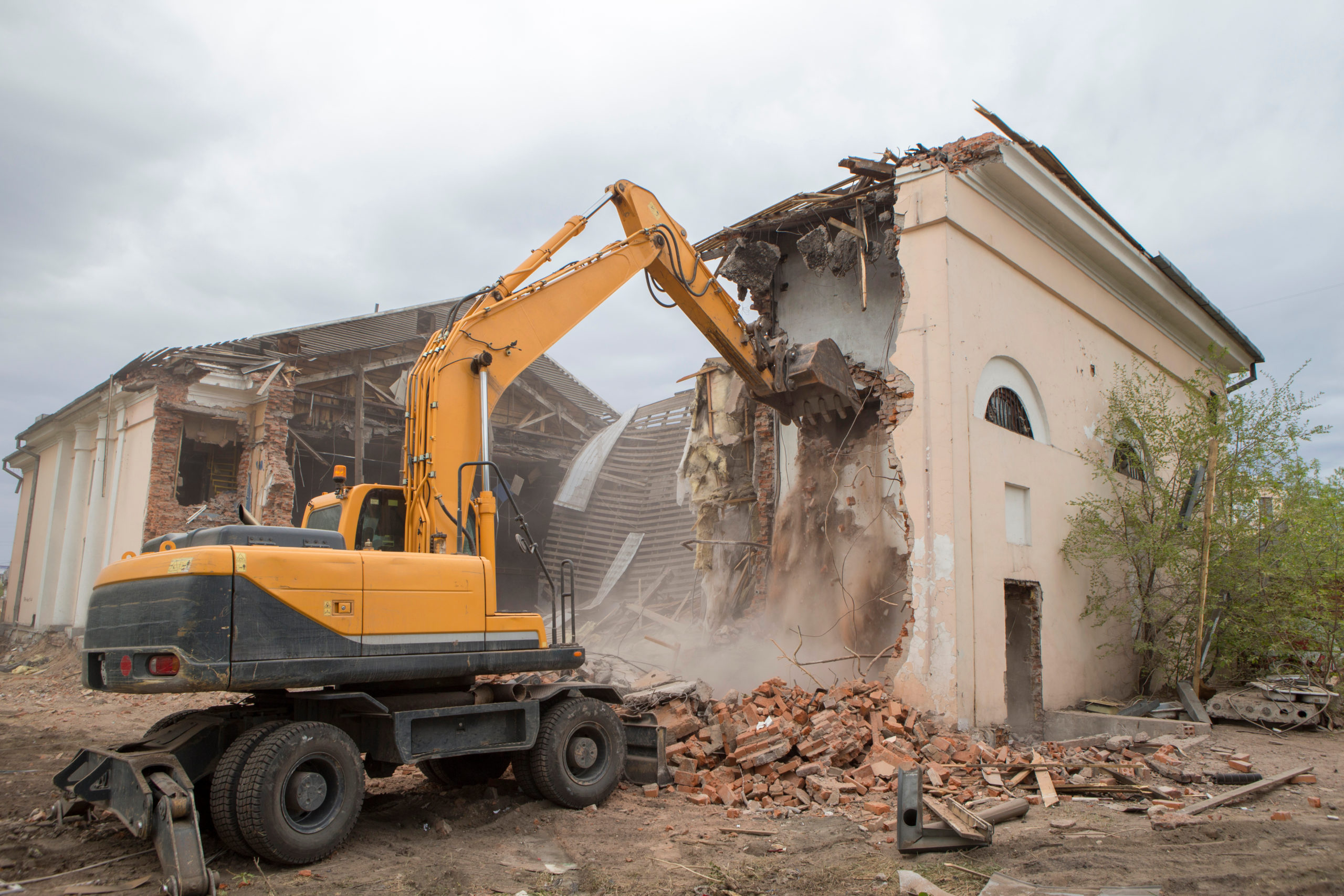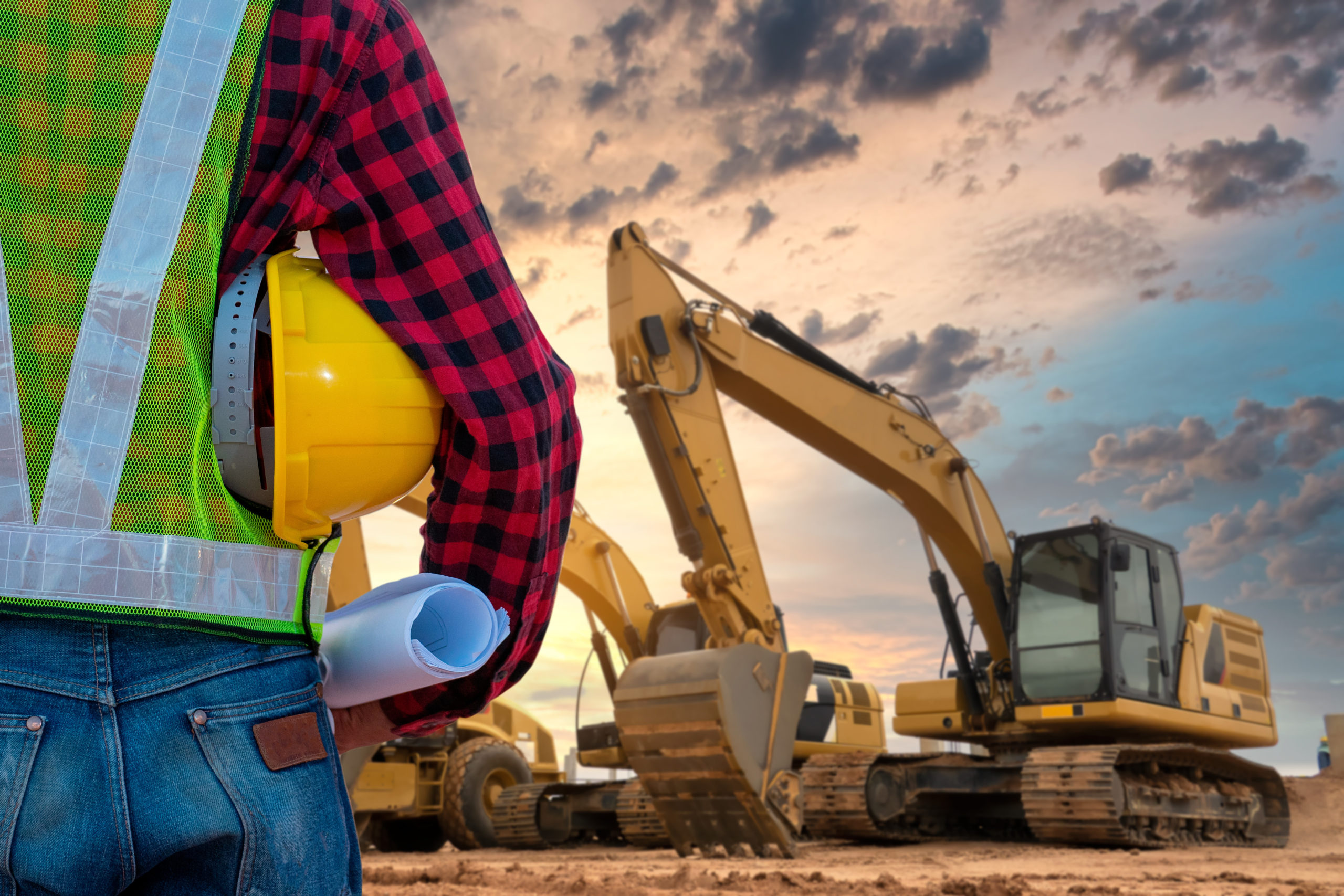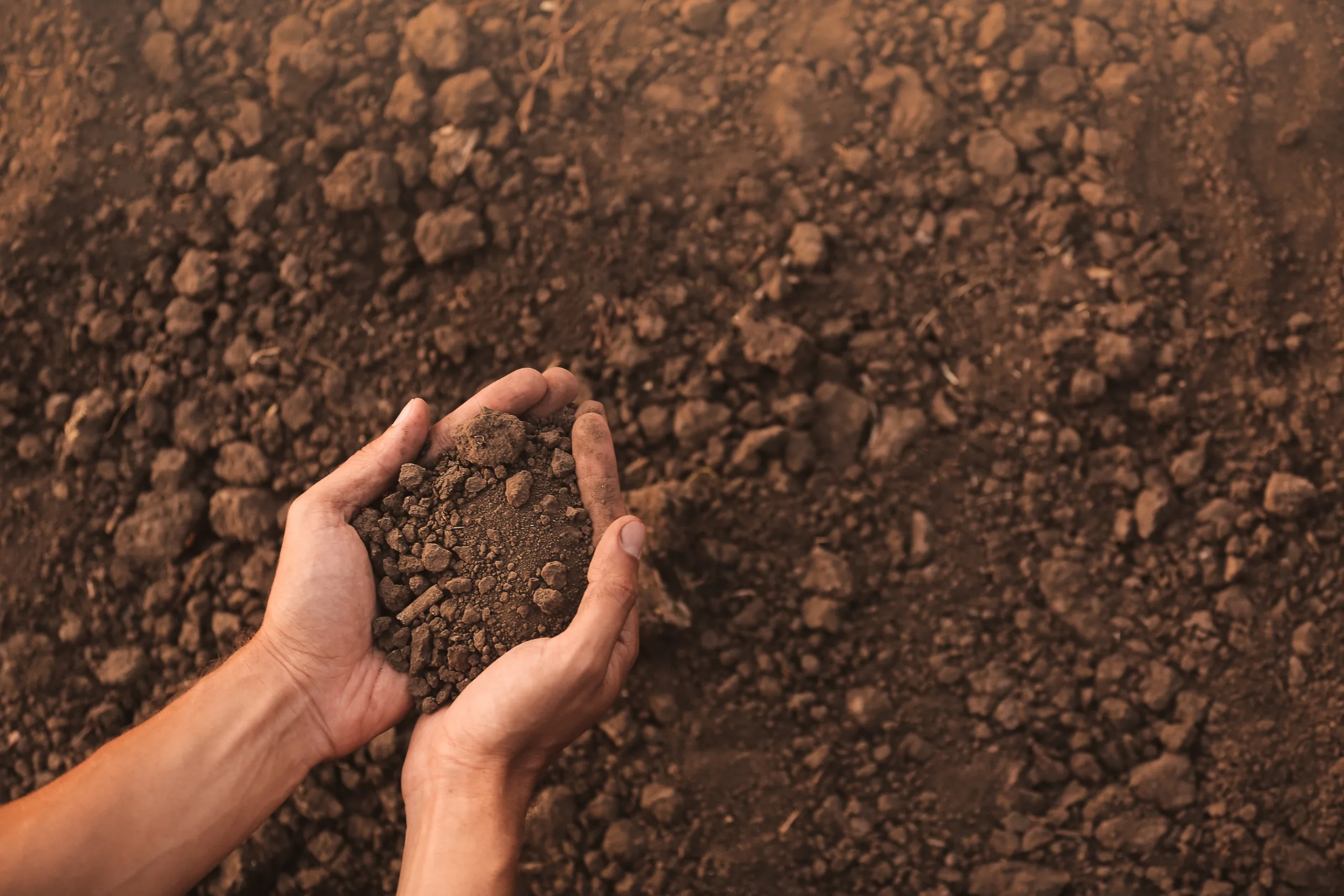Why You Need a Trusted Professional to Perform Soil Remediation
It can be frustrating to discover that you have contaminated soil that requires treatment. Not only is environmental remediation necessary to protect your health and the environment but you may be required to address the issue.
What is the best way to move forward? You might be searching online for information about DIY soil remediation. But the truth is that this type of project usually needs to be handled by the experts.
The reality is that if mistakes are made during the remediation process, it can result in an incomplete project. The pollutants will continue to cause environmental harm that can get worse over time. Additionally, you don’t want to deal with the possible legal issues if the project is managed incorrectly.
So, instead of attempting a DIY soil remediation, the best solution is to call a team of trusted professionals for assistance. The contractors will bring the best knowledge and tools to ensure that the job is completed quickly and effectively.
Is DIY Soil Remediation Possible?
The most important thing that you need to understand about soil remediation is that this process can be quite technical because of the nature of the services that need to be completed. Not only is specialized equipment required, but certain safety processes must be implemented to avoid cross-contamination and complications.
If you attempt DIY soil remediation, then it’s likely that these efforts will be ineffective or even make the contamination worse. Additionally, you must consider the risk of exposing yourself to hazardous materials without proper safety equipment and training.
Most homeowners don’t have the training or expertise to know how to effectively handle soil remediation. They likely don’t understand the extent of the problems or the best way to clean up the soil effectively. Additionally, environmental firms will usually require the project to be handled by professionals once contamination in the soil is confirmed.
One of the biggest reasons why you shouldn’t attempt DIY soil remediation is that if the project is handled improperly, then it can result in expensive fines and legal issues. All environmental regulations must be followed, and homeowners often don’t understand these requirements. DIY soil remediation might seem like a solution to save money, but the reality is that this approach can often cost more money in the future: you will need to pay the fines and still pay the cost of professional soil remediation services.
The Benefits of Working with a Trusted Professional for Soil Remediation
There’s no doubt that hiring a professional team to remove the contamination is your best choice. It’s worth the investment when you consider all of the benefits you will receive from these services. Here are just a few reasons why it makes sense to pay for professional soil remediation.
Expert Knowledge and Assessment
When an expert team is on the job, they understand the most effective strategies – which depend on the type of soil and contaminants involved. Advanced testing methods can be implemented to determine the ideal soil remediation techniques. These services ensure that all types of contamination are addressed, including heavy metals, petroleum products, and more.
Each situation is unique, which is why there isn’t a one-size-fits-all solution for every project. You need a team of experts to evaluate your situation and offer customized recommendations.
Cost-Effective
Yes, it might seem like the upfront costs are higher for professional services than for DIY soil remediation. But the reality is that these expert services are an undeniable benefit because of the costly mistakes that you can avoid in the future.
When a pro team is on the job, they complete the remediation as quickly and effectively as possible. This approach helps to reduce the risk of delays and minimize downtime for the project. Plus, you can rest assured knowing that you are avoiding potential fines and legal expenses that can add up if the local authorities step in because of improper remediation.
Compliance with Environmental Regulations
There are many environmental regulations that must be addressed, including local, state, and federal rules. An experienced soil remediation team holds the responsibility to ensure that all of these compliance factors are handled throughout the remediation process.
The contractors and environmental firms not only ensure that the process of removing contaminants is in alignment with regulations, but they also handle the necessary permits. Additionally, a professional team understands the importance of documenting every step of the process to prove compliance if needed. When you are following necessary compliance, it helps to reduce your legal liabilities in the situation.
Specialized Equipment and Resources
Your professional soil remediation team will bring the specialized equipment necessary to get the job done right. This equipment uses modern technology, with properly trained crew members completing the work. When specialized equipment is used, it ensures a thorough cleanup – which can’t be achieved with DIY soil remediation.
Safety measures are used every step of the way. Also, the site is tested at the end of the project to confirm a successful outcome.
Proper Use of Remediation Techniques
Depending on the type of contamination, methods might include the use of thermal treatment and/or chemical treatment for the process of removing unwanted materials and protecting human health at the same time. Each client receives a customized remediation plan to ensure the best results possible.
Remediate Your Soil the Right Way with Professional Assistance
When soil remediation is necessary, then you need to partner with an excavation crew and environmental firm to complete the job. Investing in professional services is an excellent way to protect your property value and achieve a successful outcome.
Our team at Mikula can do the digging, take care of waste disposal, and bring in new fill dirt, working side-by-side with the environmental firms that are handling the soil remediation. Contact us to learn more about the ways that we can help with soil remediation.
Winter Drainage Challenges and Solutions
When the snow starts to fall, every homeowner and property owner needs to be proactive about managing winter drainage to avoid seasonal problems during this time of year. Winter brings unique drainage problems that can cause various types of issues, including water damage. If you don’t have an effective drainage system in place, then you might be dealing with expensive repairs in the future.
Some of the most common issues that can occur in cold weather include frozen pipes, soil saturation, and water accumulation – all of which add up to costly damage to your property. So investing in drainage solutions is a smart choice, as an effective system helps to prevent water damage throughout the year.
Why Winter Drainage Solutions Are Essential
There are several reasons why it’s essential to be proactive about managing drainage issues, especially in the winter months. Avoiding water damage issues helps to protect your foundation. These drainage solutions prevent water from accumulating around the foundation of your home or commercial building, which is important for long-term durability.
Water accumulation can be an issue throughout the year, even in warm weather. But cold weather exacerbates the issues, especially when the water starts to freeze. Water can seep into cracks and crevices and then freeze, expanding as it transforms into ice. This expansion can result in serious damage to the foundation and other parts of your home.
To avoid this, you need to make sure that the drainage systems are working correctly, especially when the temperatures turn cold and you experience extreme winter conditions.
Common Winter Drainage Challenges and Solutions
The first step to ensuring that you have an effective system for winter drainage is to understand the most common issues that can occur during this season. Once you know what problems you are working to prevent, then you can install a drainage system to avoid these issues.
Our experienced team at Mikula Contracting has been helping homeowners and property owners for many years with solutions for drainage problems. If you need assistance or personalized recommendations, then we encourage you to reach out at your convenience to schedule a consultation and learn more about your options.
Frozen Pipes
When you are in freezing temperatures, the extremely cold weather can cause frozen pipes to burst. Water sitting in the pipes is exposed to cold temperatures, and the pipes aren’t large enough to contain everything as the water freezes into ice and expands in the process.
The good news is that simple solutions can be used to protect any exposed pipes. You might consider several options, depending on the location of the pipes. For example, some pipes simply need to be insulated, with protective materials wrapped around the piping to minimize cold exposure. Consider installing frost-proof spigots, using pipe heating cables, or installing other heating solutions near the pipes that are at risk.
Saturated or Frozen Soil
The winter weather in New Jersey can cause soil to become waterlogged, which might eventually freeze depending on the conditions. These yard drainage problems often damage landscaping and other features on your property, resulting in a big mess that needs to be cleaned up in the spring.
If you know that you have issues with oversaturated soil, then talk to our team about your options for using a sump pump to control the water. Any excess water can be quickly removed before it ices over and starts causing blockages in the area.
Drainage System Overload
When a lot of freezing rain, sleet, snow, and even hail is coming down during a storm, will your drainage system be sufficient to handle the water load? If your winter drainage system is over capacity, then it can lead to water damage and other complications. Not only that, but, melting snow can overload your drainage system once the weather warms up.
Other drainage solutions can help if your system is overloaded, including catch basins or more piping.
Water Accumulation in Low-Lying Areas
If you have any low-lying areas, then these are likely the spots where standing water will accumulate, either from winter weather itself or from the impact of melting snow. Eventually, excess water in the low-lying areas can lead to bigger drainage problems and even flooding.
You might need to regrade the landscaping to adjust how the water is flowing through the yard. Or, consider installing a dry well that will manage the water.
Ensure Proper Drainage This Winter with the Right Solutions
Do you need help with your winter drainage solutions? Our team at Mikula is just a phone call away. We offer full-service solutions to ensure the best results possible for each of our clients. We are here to help with both residential and commercial drainage systems. For more information and personalized recommendations for your drainage system, contact us to schedule a consultation.
When Do You Need Your Soil Tested If You’re Removing an Oil Tank?
Oil tank removal requires specific steps to safely pull out the tank without contaminating the surrounding environment. If the tank is old, then it might have started leaking oil into the ground, which is when you should consider soil testing as a way to monitor the safety of the site.
Not only are oil tank removal and soil testing essential steps to comply with environmental regulations, but they also help to protect your property value and minimize the risk of more serious problems in the future. In fact, some property buyers might ask for soil testing results before closing on the purchase. If you are proactive about testing and soil remediation now, then it can minimize delays when you decide to sell the property in the coming years.
When you are working with a trusted contractor, we will be able to provide recommendations about the best way to remove the tank. This proactive approach helps to prevent larger issues, such as legal problems or costly cleanups.
Why Soil Testing Is So Important Following Oil Tank Removal
When an underground oil tank is removed, it’s typical for the contractor to recommend that you engage an environmental firm to perform a visual inspection and soil sampling. The goal is to confirm that the area is free from contamination. If the test comes back showing that existing oils are in the soil, then we can put together a soil remediation plan in conjunction with the environmental firm to ensure the health and safety of everyone on the site.
While performing soil testing might seem like a simple step, the reality is that soil contamination can have a long-term impact on the environment. Additionally, oil residue in the soil can pose health risks to humans and animals in the area.
Keep in mind that an oil spill can also affect groundwater, which makes it a public health hazard and a legal issue that you will need to deal with. Not only this, but it’s unlikely that the town will pass the tank inspection for the removal if there is evidence of a leak; it’ll be required for you to engage an environmental firm to begin testing and perform remediation before they’ll pass the tank removal. Early testing and proactive soil remediation are the best solutions to help you avoid delays.
Early detection of contaminated soil is a great solution to allow timely remediation. We recommend that you start your cleanup project as soon as possible, helping to prevent further spread and damage in the area. If you delay testing and the contamination is found later, then it’s likely that your remediation costs will be much higher in the future.
Two Instances When You Would Absolutely Need Your Soil Tested
How do you know if it’s time for soil testing? The best solution is to talk to an experienced contractor for personalized recommendations. These are two conditions when we often recommend soil testing.
A Leak Was Found in the Oil Tank
If the tank was removed and testing uncovers a leak, then we recommend thorough testing to determine the extent of the contamination. It’s possible for leaking oil to seep into the ground and affect the surrounding areas. Not only is your property at risk, but an untreated leak can cause damage to nearby properties as well.
Keep in mind that the sooner a leak is identified, the better chance you have of cleaning up the issue before it escalates. Early intervention is key, which is why we always recommend immediate soil testing if a leak is found in your oil tank. This testing will help us determine the extent of the contamination and damage.
The Oil Tank Was Not Decommissioned Properly
Another reason why we might recommend soil testing is if the oil tank was improperly decommissioned. If the proper procedures are not followed, then it is possible that oil can be left behind in the soil. We can test the soil to determine if any contamination remains after an old oil tank is removed.
Testing is an important step because it gives you the peace of mind to know that all oil tank issues are resolved fully, helping to protect your property and the environment.
How Soil Testing Works
Specific steps need to be followed to ensure accurate results from soil testing. First, soil samples are taken from the area near where the tank was located in the ground. It’s important to collect samples from different depths in the ground.
Next, the soil samples are transferred to a laboratory where they are tested to determine if there are contaminants, including oil, in the soil. If the soil is clean, then there is nothing else that we need to do. But if the soil testing comes back showing contamination, then it might be necessary to complete further remediation.
Work With a Trusted New Jersey Oil Tank Removal Contractor
When you are removing an old oil tank, then it’s essential that you are partnered with an experienced contractor who will ensure that all of the oil is removed safely without contaminating the soil. Make sure you are working with a trusted provider so that everything is handled professionally and according to industry regulations.
Our team is here to help with anything that you need, including soil testing and remediation steps. We will make sure that your property is safe and that all compliance details are managed every step of the way. You deserve to have peace of mind, knowing that the job will be done right the first time.
For more information about available services, contact us at Mikula. Not only do we offer residential tank removal, commercial oil tank removal, and oil tank scans, but a variety of other site services are also available. We are always here to help!
An Environmental Firm's Role in the Soil Remediation Process
When soil contamination happens, it can be a serious problem. Whether you are dealing with chemicals, heavy metals, or harmful substances, it’s essential to clean up the contamination as quickly as possible. Not only does polluted soil impact the environment, but it can have a negative toll on animal and human health in the area.
Our team at Mikula offers oil tank removal, soil remediation, and other related services, and we are experienced in working closely with environmental firms to ensure that the proper protocols are followed at all times.
Our goal is to make sure that everything is done safely, based on the rules set by government agencies. We always follow proper protocols to protect everyone in the area and ensure everything is done right the first time.
What Does an Environmental Firm Do?
When you hire an environmental firm to work alongside your contractor, you can be confident in knowing that you have access to the best remediation strategies and technologies to clean up contaminated soil. They start with a thorough site assessment to determine the contamination levels and the severity of the issues.
Next, it’s time to develop a remediation plan. Part of this plan may include necessary services such as oil tank removal and soil remediation, which Mikula can help with. We work hand-in-hand with the environmental firm to ensure success every step of the way. Each situation is unique, which is why there isn’t a one-size-fits-all solution for your project.
We always follow the proper safety protocols and ensure that our crews maintain compliance every step of the way. We are familiar with the applicable environmental regulations to protect the site and surrounding areas. The environmental firms we work with are proactive about providing detailed reporting and documentation of this remediation process.
When Does an Environmental Firm Get Involved in the Soil Remediation Process?
How do you know when it’s time to call an environmental firm for help with your soil remediation? Typically, these services are initiated if testing determines that the soil is contaminated, the environmental firm would handle the testing and provide the details of how much soil is suspected to be contaminated and work with your contractor to devise a plan for remediation. Additionally, if you are already in the process of removing your oil tank and notice a leak you’ll need to loop in an environmental firm
The best thing you can do is call an environmental firm right away. The earlier the team is involved, the better the potential outcome in the future. Early involvement ensures regulatory compliance as well as proper planning to achieve an optimal outcome.
Sometimes, soil remediation services are called in during construction projects. For example, if the construction crew suspects that the soil is contaminated with heavy metals, chemicals, or other hazardous materials, then construction might be paused to allow for soil remediation methods– a decision that may be made by the firm and executed by the contractor.
When you involve an environmental firm in the initial stages of your project, it helps to reduce the risk of costly details and even legal issues later on.
How Your Contractor and Environmental Firm Should Work Together
This coordinated approach is essential to take care of the contaminated areas and also allow the construction to move forward as planned.
In the majority of situations, the environmental firm will be involved with the remediation process, offering expertise and oversight for the project as the contractor completes the contracted work and replaces the dirt following the successful completion of the remediation. It’s a multi-part approach that will ensure safety and compliance every step of the way.
Finally, the contractor and environmental firm maintain regular check-ins throughout the project to make sure the entire team is following proper protocols. Adjustments are made to the initial plans on an as-needed basis as new information is discovered throughout the course of the project.
Our team at Mikula is here to help, offering clear communication with all relevant providers to minimize problems and project delays. When Mikula is on the job, you can have confidence in the services you are receiving. We often work with environmental firms and provide the complementary services that are needed for a successful outcome.
Ensure Your Soil Remediation Project Goes Smoothly
When you are completing soil remediation projects, there are several things that you can do to reduce the risk of delays and setbacks as work progresses. You need to be sure that you are working with the right experts and contractors who have previous experience with similar projects.
Make sure that all of your contractors, consultants, and environmental specialists are maintaining clear and constant communication and working together to complete the project. Contaminated remediation projects need to be monitored closely, with adjustments being made based on field conditions and test results.
Ensure your contractors offer a full range of services depending on the unique needs of your project and site. They can help with everything from taking care of the permeable reactive barrier to managing the solidification and stabilization of the soil. Mikula can be an integral part of this process, offering our expertise that goes hand-in-hand with the environmental services that you need.
When you are in need of soil remediation services, then our team at Mikula is here to help. We offer full-service solutions to clean up your property and ensure safety now and in the future. Contact us to learn more.
Why the Weather Forecast Plays an Important Part in Demolition Planning
When you are getting started with demolition planning, there’s no doubt that the weather forecast needs to be considered to ensure a successful outcome for the project. These types of projects are highly sensitive to the weather, and changes in the forecast can play a role in safety, project timelines, and overall cost.
While it’s not possible to avoid adverse weather conditions altogether, knowing the forecast can help the demolition team prepare for any potential delays that might occur. This information is valuable to adjust plans on an as-needed basis, which also helps to prevent accidents and ensure smooth operations throughout your residential or commercial demolition project.
The Weather’s Impact on Demolition Planning
The type of weather conditions you are dealing with will impact demolition planning in various ways. For example, certain types of weather can make it unsafe to use certain equipment or might increase the risk of structural instability.
Not only do weather patterns affect the demolition planning itself, but they can also impact access to the construction site and the transportation of debris removal. Many factors and logistics need to be managed to ensure the project stays on track from start to finish.
Our team is proactive with proper timing for your demolition project, considering weather forecasts and other site-specific factors that could affect the risk of hazardous situations.
Rain
A few sprinkles are usually insignificant during demolition planning. But if you have heavy rain, then you need to be ready with contingency plans.
A lot of water makes the ground unstable and slippery, which can lead to equipment malfunctions and safety risks. These issues affect visibility, slow down the workers, and make it more difficult to be precise with the demolition work.
Additionally, if there is water accumulation on the demolition site, then the standing water can interfere with demolition tools and heavy machinery. Not only does the equipment have difficulty functioning in these conditions, but you are also increasing the risk of damage to the equipment.
On the other hand, however, rain can also work in favor of your demolition contractor as rain does help keep dust down during the demolition process.
Snow
Snow also poses a safety risk for workers and machinery. The moisture and freezing temperatures can create cold and slippery conditions, which cause delays in the demolition schedule. When demolition planning occurs in winter weather conditions, then it can result in increased costs and timeline delays due to the need for more preparation and site cleanup.
Other issues can occur when ice starts to build up. For example, this buildup can damage equipment and freezing temperatures make it unsafe for the workers to complete the demolition in these conditions.
Wind
Strong winds are another big concern during demolition planning and execution, especially if you are dealing with open-structure or high-rise demolitions. High winds can put workers in danger, blow in debris, and put bystanders and nearby buildings at risk.
In fact, if the wind is too strong, then it can pause demolition activities completely. If there are safety concerns, then a good demolition contractor will halt the project to ensure the safety of everyone on site.
Temperature
Extreme heat is another weather factor that needs to be considered during demolition planning. When it’s hot outside, crews on construction projects have a higher risk of exhaustion and heat-related illnesses. Not only is this a concern for worker safety, but it can also slow down progress on the project.
On the other hand, cold temperatures can cause equipment malfunctions, problems with heavy machinery, and other issues like frozen pipes. Proactive strategies need to be in place when demolition planning is occurring during the winter season.
Another factor that needs to be considered is the way temperature changes can affect the materials being demolished. So, the whole process can be more unpredictable, depending on the time of year and weather conditions.
It’s important to note that while extreme temperatures can be problematic if planned and communicated properly you can still maintain a successful project.
Extreme Weather
While extreme weather events aren’t common in New Jersey, they are still possible and need to be considered in demolition planning. Examples include hurricanes or tornadoes that can cause serious delays, and may even shut down the project until the weather event is over.
All demolition and construction sites should have contingency plans in place if extreme weather occurs, including securing the site and evacuating the crew if needed. Planning for these potential events helps to reduce the risk of potential damages and protects workers at the same time.
The Importance of Understanding the Weather Forecast for Demolition Planning
When the demolition team is aware of upcoming weather, they can build contingencies into the demolition planning and scheduling. Checking the weather forecast is a great way for contractors to decide on the best time to start or pause the project.
Additionally, continuous monitoring is essential to ensure that everything is staying on track and to minimize the risk for everyone involved. If the conditions change, then we can make adjustments to the schedule, the type of equipment being used, or other strategies for a safe demolition.
How to Avoid or Minimize Weather-Related Demolition Delays
When you are hiring a demolition contractor, ask them about how they work around weather-related delays. One of the best strategies to manage these situations is by creating contingency plans that allow for project rescheduling and/or alternate workdays in case bad weather occurs.
A knowledgeable team will always stay up-to-date on anticipated weather patterns over the upcoming days and in the long term if it’s an extended demolition and construction project. Additionally, it’s important that the team uses weather-resistant materials and equipment that will keep the work moving forward in light weather conditions (such as wind or rain).
Call Our Knowledgeable New Jersey Demolition Contractors
You deserve to be working with a demolition provider that you can trust. If you are looking for local demolition contractors, then we invite you to reach out to our expert team at Mikula. We understand the challenges that need to be handled when weather conditions are affecting the project.
At Mikula, we are proactive about carefully planning around weather forecasts so that you can keep your project on time and safe. When you need professional demolition services, then reach out to us to learn more about the ways that we can help. Schedule a free consultation to discuss your upcoming demolition project.
What Happens If Your Oil Tank Has a Leak?
If you have an oil tank, when was the last time it was inspected for leaks or maintenance needs? Often, the oil tank is out of sight, so property owners do not typically complete routine or regular inspections. But if the tank is leaking, then it’s essential to catch these issues in the earliest stages so you can schedule repair services or even oil tank removal if necessary.
The reality is that if you have oil leaking, then it can cause some serious environmental issues. Both the soil and water in the area might be contaminated, which poses health risks, safety concerns, and potential issues with the local ecosystem.
If you need help with an oil tank removal, then our team at Mikula is just a phone call away!
Potential Problems from an Oil Leak
Every property owner with an oil storage tank on-site needs to understand the severe consequences and damage that can occur from an oil leak. If the oil continues leaking and you delay an oil tank removal, then some of the issues that might occur include:
- Environmental Hazards: Even small leaks can take a toll on the environment because of the contamination to the soil and water.
- Home Damage: If the oil is seeping into the utility room or basement, then it can lead to expensive cleanup and possibly restorations because your home has been damaged.
- Health Risks: People near the oil leak could experience negative health effects because of direct exposure or inhaling fumes from the oil.
- Legal or Financial Liabilities: There is a possibility you could be facing potential legal and financial issues such as fines or remediation costs, especially if the leak has an environmental impact.
- Fire Risk: The presence of leaking oil can increase the likelihood of a local fire, putting the homes and other structures in the area at risk.
Telltale Signs Your Oil Tank Has a Leak
How can you tell if a leak is happening in your above-ground or underground oil tank? If the tank is underground, then visual inspections are difficult. Luckily, there are a few other signs that you might be dealing with a leak or other issues with the tank:
- Visible Oil Stains: Check the area where the tank is located to see if you can find any visible oil stains. An above-ground oil tank might have visible stains on the outside of the tank or on nearby surfaces. Or, you might see soil discoloration if the tank is below ground.
- Drop in Oil Level: Have you recently noticed a sudden and unexplained drop in the oil level? If you don’t have a corresponding increase in heating usage, then it could be an indication of an oil leak that needs to be fixed.
- Strong Smell: Pay attention if you are noticing a strong smell in your home or near the tank. Oil will create a unique smell, so if you are noticing this scent then it might be time to schedule an oil tank inspection.
- Dead Vegetation: When oil starts leaking into the soil, it can kill the vegetation in the area. So, if you notice dead or dying vegetation near the tank location, then it could be a sign that the tank is leaking.
- Rust or Corrosion: If you can see the tank, check for other signs of damage on the surface, such as rust, corrosion, or wet spots on the exterior.
Some of these signs of oil leaking can be identified with a DIY inspection. But it’s always smart to call a professional team for further investigation and personalized recommendations.
Who to Call If Your Oil Tank Has a Leak?
If you suspect that you have oil leaking from your tank, who is the best provider to call? A licensed environmental firm is a great resource if you suspect there is a leak in your oil tank. The first step will be to evaluate and confirm whether there is a leak or not.
Also, it’s smart to notify your service provider or oil company so that oil delivery is paused until you can resolve the issue. The company might also have recommendations for fixing the problem.
If there is damage to your home, then reach out to your homeowner’s insurance to find out if you have coverage available for the remediation that will be needed.
In the rare (but possible) situation where the oil leak is causing a local fire, then it’s essential to dial 911 immediately so the fire department can handle the situation.
Finally, if the oil leak is spreading and significant, then it’s best to reach out to local environmental authorities to avoid further damage or potential fines.
So You’ve Discovered Your Oil Tank is Leaking - What’s Next?
If you’ve discovered that your oil tank is leaking first you will want to speak with an environmental firm to confirm that there really is a leak. For example, at Mikula Contracting we regularly work with environmental firms on projects involving oil tanks that need to be removed. Additionally, if your project requires soil remediation that would also be addressed during the process.
The goal is to stop the leak as soon as possible while also minimizing the complications and environmental impact. Depending on the situation, It might be recommended to remove the oil tank, or maintenance might be sufficient to resolve the situation.
Each situation is unique, which is why there isn’t a one-size-fits-all solution if you have oil leaking from your tank. It’s important that you consult with a professional team to ensure you are following the best strategy to resolve the problem and avoid more issues in the future.
Call Mikula Contracting to Remove Your Leaky Oil Tank
Do you need help with an oil tank removal? Then contact our experienced team at Mikula for more information. We are here to help with anything you need, offering full-service solutions, including residential tank removal, cleanup services, and more.
How to Tell a Building Needs to be Demolished Versus Renovated
If you have an old building on your property, is it possible to invest in renovations, or should you call a demolition contractor instead? Each situation is unique, which is why there isn’t one specific answer for every job. The best solution is to reach out to an experienced contractor who can inspect the building and offer personalized recommendations.
There are various factors we can look at to determine if the building is worth renovating or if you will be better off demolishing the building and starting with new construction. It’s essential to look at factors such as safety, structural issues, and the financial costs of both decisions.
Here are a few things to keep in mind as you are considering the future use of the property, as well as the time investment and cost considerations going forward.
Demolition Vs. Renovation
There are many benefits of preserving an older building, and you can’t put a price tag on some of these benefits. For example, preserving the historical or sentimental value of the building might make it worth the investment to undertake a big renovation.
But there are times when the building isn’t salvageable, or it will be too costly to renovate. In these situations, it makes more sense to call a demolition contractor so you can clear the area for a complete rebuild.
As you are evaluating both of these options, look at the differences in the scope of work that will be necessary. Also, consider the cost and time requirements, necessary permits, and building code requirements for demolition vs. renovation.
When Would a Renovation Be More Beneficial Than Demolition?
Here are a few points that can influence your decision to choose either renovation or demolition:
Structural Integrity: Does the existing structure have “strong bones?” If the foundation and walls are holding up well, then renovation might make sense because the work is a bit more surface-level.
- Historical Significance: Sometimes, there are legal protections in place that require historical buildings to be renovated. The goal is to preserve historical buildings and protect them from demolition.
- Costs: How much money would be spent on a renovation? What is the most cost-effective solution? Compare these costs to the amount you would spend on demolition and rebuilding. If you are in an area with strict building codes, then sometimes the costs of demolition outweigh the benefits.
- Cosmetic Upgrades: If your priority is to improve the cosmetic or aesthetic appearance of the building, then minor repairs and a renovation might be sufficient to bring the building up to the desired condition again.
- Modern Improvements: When your goal is to update features while preserving the character of the building, then renovation can be a great choice.
Signs Your Building Should Be Demolished
There are times when the best solution is to demolish and rebuild, but it really depends on the condition of your building and property. Here are a few signs that you might need to move forward with a demolition:
- Structural Issues: Inspect the building for serious problems such as foundational cracks, sagging roofs, and other major issues that will be very expensive to repair. Also, if there is a danger of collapsing, then demolition might be the best way to proceed.
- Water Damage: Extensive issues with mold, water or fire damage, and other environmental hazards could pose long-term risks to the building and the people inside.
- Outdated Systems: Eventually, major systems will need to be repaired such as the plumbing, electrical, or HVAC systems. But sometimes it’s too impractical or expensive to retrofit these things, which is where it might be best to demolish the building and construct something new.
- Safety Codes: All buildings must meet certain safety standards and local codes. If your building isn’t compliant, then it might need to come down.
- Land Value: When your old building is in an area where the property values are increasing, then it’s possible that the land might be more valuable than the actual building. Evaluate whether demolition is the best financial choice to ensure you get the top price for the sale of the property.
Work With a Demolition Contractor You Can Trust
If you decide that it’s necessary to move forward with demolition, then the first step is to hire a trusted demolition contractor in the area. Make sure to pick a team that is licensed and experienced to ensure that your demolition is safe and efficient. We can come to your property to complete an inspection and assessment to determine if demolition services are the right fit for your needs.
At Mikula, we are here to help with anything that you need. Not only does our team handle the actual demolition, but we can also assist with other necessary tasks such as obtaining permits, building material waste disposal, and environmental considerations. We have experience with demolition in residential properties and commercial buildings.
We offer full-service solutions for your upcoming demolition. For more information, contact our team at Mikula to schedule a consultation.
What is Next for Your Job Site If There is Soil Contamination?
It’s not ideal if you are getting started with a construction project and find out that soil remediation services are necessary. Even if it is only a small amount, the hazardous materials in the soil can pose a threat to both people and the environment. The best thing you can do is take a proactive approach to cleaning the contaminated area so that you can avoid bigger (and more expensive) problems in the future.
The reality is that soil contamination can be a serious issue. Not only are there health concerns, but it can also result in costly delays for your construction project. So, you need an experienced team to help with the necessary steps to clean everything properly. Whenever possible, early detection and prompt action are crucial to manage costs and improve the long-term outlook.
If you need soil remediation services, then our team at Mikula is here to assist. We offer full-service solutions by partnering with environmental firms to clean up your site and prepare the land for upcoming construction and other projects. Here are some of the steps to take if your job site has contaminated soil, and how our soil remediation services can help.
What Does It Mean to Have Contaminated Soil?
If you have soil contamination, then it means that there are harmful substances within the ground. Soil testing looks for different types of contaminants, and also checks the level of contamination. While it’s normal to have a bit of contamination in all soil, your property needs to meet regulatory standards so the contaminants don’t exceed the natural levels.
Some of the most common types of soil contaminants include:
- Chemicals
- Heavy Metals
- Pesticides
- Petroleum Products
Soil contamination can originate from many different sources. Some of the most common sources of contamination include:
- Improper waste disposal
- Industrial activities
- Underground storage tanks that are leaking
- Agricultural runoff
- Dumping
What to Do If Your Soil is Contaminated
Safety is always the priority when you determine that the soil is contaminated. If the soil testing results come back positive, then you will likely have to stop construction immediately. Soil remediation services are necessary before resuming construction so that you can be sure that the workers and environment are being protected at all times.
Make sure to seek expert guidance for your soil remediation project. Our experienced team works with premier environmental firms who will come to the site to assess the level of contamination in the soil or groundwater. We work with the local regulatory agency to obtain the necessary permits and ensure proper protocols are followed every step of the way.
Usually, a thorough investigation is needed, including a comprehensive site assessment, so we understand the extent of the contamination. Then, we can use this information to design your personalized remediation plan that will remove the contaminants and restore the safety of your site.
How to Prepare Your Job Site for What is Next
A variety of soil remediation services can be used to clean up the site in the most effective way. Containment is an important step to prevent the contamination from spreading to nearby areas. Preventing further spread ensures safety and saves you money at the same time.
We always put safety first. The workers on site are supplied with personal protective equipment and proper training to handle the situation. It’s important to stay strict with these protocols in order to protect the health and wellness of everyone on site.
Several logistics need to be handled to prepare the site for upcoming remediation activities. For example, we will bring in the necessary equipment and determine proper disposal facilities depending on the type of contamination that we are dealing with.
Don’t Let Contaminated Soil Go Unnoticed
A proactive approach can help you minimize soil contamination problems. While soil remediation services are always available, the best solution is to prevent the contamination from happening in the first place. Also, if you catch potential contamination issues in the early stages it allows you to get started with early intervention as quickly as possible.
Pay attention to any potential signs of contamination, such as soil discoloration, unusual odors, or vegetation that is stressed or dying. If something looks unusual, then you should do testing or look into the situation to see what is happening.
Additionally, proactive testing can be done before construction begins. If your property is in an area with a history of industrial activity, then it’s even more important to make sure that you are proactive about soil testing to prevent delays in the project.
Even though soil testing and soil remediation services seem like an extra step that you would like to avoid, the truth is that addressing these issues early will give you peace of mind.
Call the Experts for Soil Remediation Services
Do you need soil remediation services? Then Mikula is the team to call. We’ve been serving the local community for many years and have extensive experience with soil remediation, soil washing, and more. We understand these biological processes and can take care of your issues effectively. Contact us today to schedule your consultation and learn more about the full range of services that we offer.
Sitework and its Crucial Role in Preparing Your Site to Build
Site preparation is an essential step before construction can begin on a job site. When you begin your project, one of the first members of the team to begin work is a land improvement contractor. These services prepare the land so that a foundation can be laid to ensure the structural integrity of the building.
While construction sitework can seem unnecessary at times, the reality is that this preparation is a critical factor in the success of the project. If you skip these steps, it will likely lead to costly and stressful problems down the line. Additionally, these issues can result in delays to the overall construction project if you aren’t careful.
An experienced New Jersey land improvement contractor will offer the best recommendations to ensure that all of your necessary preparatory work is done. In this article, we will take a look at some of the different types of sitework that might be recommended, depending on your unique needs.
What Different Types of Sitework Can Be Done?
Your sitework project will be customized based on the current conditions of your property, and what type of work will be done in the future. The most important decision you will make is hiring experienced excavation contractors to help, regardless of the size of your project, whether it’s residential or commercial. When the experts are on the job, then you can have confidence in knowing that your property is ready for the upcoming construction.
Some of the most common types of construction site preparation include:
- Clearing and Grubbing: This step involves removing trees, vegetation, or any other obstacles that are in the way and will cause obstructions while the construction crews are working.
- Excavation: This entails digging the foundation and removing unnecessary earth to make room for the building.
- Grading and Leveling: You need proper drainage, as well as strategies for stabilizing the soil to prevent shifting or caving. We’ll shape the surrounding grounds so that the water runs away from the building and into drainage systems that are installed.
- Trenching: If there aren't utility lines already laid on the site, then it might be necessary to dig narrow trenches where the utilities can be placed (such as cables and pipes).
- Compaction: The soil needs to be compacted to achieve the ideal stability and density, helping to reduce the risk of the foundation shifting or settling in the future.
Differences in the Types of Sitework
The construction process for your sitework project will depend on the current condition of your property. The simplest solution to determine the ideal sitework plan is to talk to a New Jersey land improvement contractor for personalized recommendations.
There are three categories that sitework services typically fall into.
New Land
If this is the first time construction is happening on the property, then extensive preparation is needed, such as clearing and grubbing. Due to regulatory and environmental requirements, it might also be necessary to complete soil testing.
New land can be challenging, especially if the terrain is uneven or there are large rocks or trees in the way. Our team can bring in the heavy equipment that is needed to ensure that everything is completed safely and efficiently.
Demolishing an Existing Structure
If there is an existing structure in the way of your new construction, then demolition and clearing needs to happen before the project can get started. It takes a lot of work to demolish an existing structure, and all of the debris needs to be removed from the site as well.
Not only does demolition involve tearing down the walls and structure of the building, but it is likely that the foundation and underground structures also need to be removed. Sometimes, extra caution and specialized practices need to be implemented before the demolition can even take place to manage any hazardous materials such as lead paint or asbestos. In those instances be sure to hire professionals to keep your project in compliance.
Installing an Addition
When you are adding onto a current structure, the preparatory work is a little less intensive compared to other types of sitework. Your New Jersey land improvement contractor will use caution to prepare the land without causing structural damage to the existing structure. If mistakes are made, then it can take a toll on the structural integrity of your building, which is why it matters that you choose a team you can trust.
Not only will a good contractor bring in the equipment that is needed, follow sitework best practices, and be proactive about subgrade stabilization– but you can also rest assured knowing that they will obtain the necessary permits and always follow local regulations.
Work With a Trusted Land Improvement Contractor
When you need to hire a New Jersey land improvement contractor, then Mikula is the team to call. We have many years of experience in the industry and bring the best skills to your worksite. Not only do we offer sitework services, but we can help with excavations, demolition, and more. Reach out to schedule a consultation and learn more about the ways we can assist with your upcoming project.
What Happens After a Soil Analysis on Your Construction Site?
A soil test is something that most property owners don’t think about, but the reality is that this testing is often a critical step before a construction project. Soil analysis determines the next steps in the construction process, which is why it can impact planning, timelines, safety, and costs. Experienced excavation contractors understand the importance of evaluating soil quality before moving forward with any project.
At Mikula, our team pays attention to the details and prioritizes quality every step of the way. When you hire us for excavation and other related construction projects, by connecting you with the right company for soil testing based on the results we’ll be able to identify whether soil remediation is necessary.
The hope is that the tests will come back with good news, giving us the green light that we can move forward with the project. But there are times when the test results show that remediation is necessary. Having this information at the beginning of the project is the best way to manage expenses and stick to the timeline as much as possible.
What is a Soil Analysis?
A soil analysis is a detailed inspection of all properties, including soil composition, stability, potential contamination, shrinkage limit, moisture content, and whether the soil is suitable for a planned construction project. When a building is being placed on the site, it’s essential to make sure that the soil will be able to support this structure. If there are unaddressed problems with the soil, then it could result in a shifting foundation and serious damage to the building.
Just because soil testing for construction shows potential concerns doesn’t necessarily mean that you won’t be able to move forward with the construction process. Instead, there might be a few soil remediation steps that need to be followed to ensure the site is ready and suitable for construction.
Soil analysis involves multiple steps. First, the geotechnical engineers complete a site investigation. They inspect the soil, any potential hazards, and also consider whether the water table might interfere with construction. Additionally, it is necessary to collect soil samples that are taken back to the lab to perform more in-depth testing to evaluate soil composition.
The most common types of tests that are performed include:
- Geotechnical tests, such as shear strength, compaction, and bearing capacity;
- Environmental tests to detect if hazardous materials are present in the soil; and
- Chemical tests to understand the soil nutrient content and pH levels.
What Happens If Your Soil Comes Back Normal?
Good news! It’s a positive outcome if the soil testing comes back with normal results. There is no need for soil remediation, which means that you can move forward with construction as planned. The selected materials and the way the foundation is designed match the soil conditions.
The benefit of a “normal” soil analysis is that you can streamline the construction project and timelines. Normal soil avoids delays due to additional testing and soil remediation steps.
You will be saving both time and money if your soil tests are normal!
Additionally, normal soil testing results give you the peace of mind that your building is on good ground. You can move forward with the project in full confidence, knowing that the site you have selected is suitable for your plans.
What Happens If Your Soil Comes Back as Contaminated?
If the results come back showing that the soil is contaminated, then a few extra steps need to be followed before you move forward with construction. We’ll start with a risk assessment to determine potential hazards, including construction concerns, health risks, and environmental concerns.
But just because your soil is contaminated doesn’t mean that you need to cancel the construction project. Instead, you will need to take care of soil remediation first before deciding on the next steps.
Soil remediation options might include:
- Removing the soil and replacing it with higher quality soil;
- Treatment on-site, such as chemical oxidation or bioremediation; and/or
- Capping or containment.
Keep in mind that there are specific regulatory requirements that must be addressed for soil remediation on the construction site. Your excavation contractor should ensure that you comply with all local and federal regulations regarding the way the soil is handled, managed, and treated.
One of the biggest drawbacks of contaminated soil is that you can expect significant project delays and high costs for soil remediation. So, you will need to make adjustments to the construction timeline and your budget. But once you have completed soil remediation successfully, then you will likely be able to move forward with the project as planned.
Consult With an Experienced New Jersey Excavation Contractor
When you work with an experienced excavation contractor, you have access to the knowledge and resources of a professional team. We can both help with the soil remediation process and also offer the best suggestions for effective and cost-effective soil remediation or foundation adjustments.
Safety is always our top priority, which is why we are proactive about testing whenever it is needed. We offer peace of mind, so you know that your construction project can be completed successfully. For more information about residential and commercial environmental cleanup, reach out to our experienced team at Mikula. We’re here to help!

